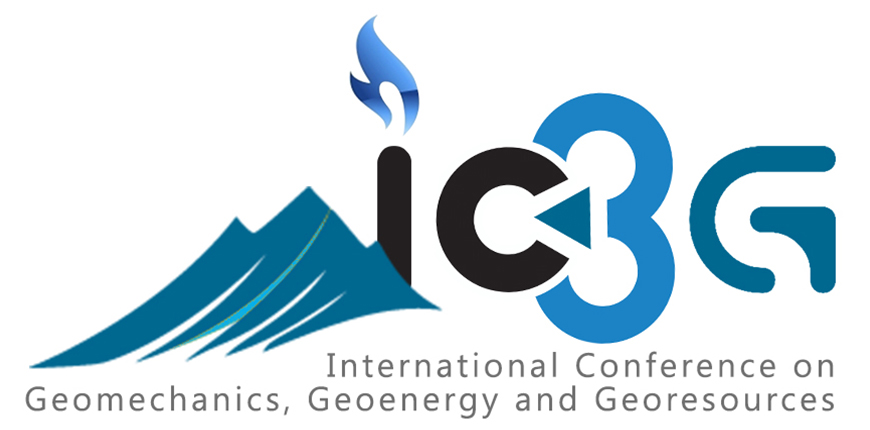To date, deep Earth resources remain poorly understood and entirely under-utilised. There is a growing appreciation of the important role deep Earth will play in future sustainability, particularly in opportunities for new and sustainable large-scale energy alternatives, and extraction of resources through mining and greenhouse mitigation.
This conference is aimed at promoting discussion of strategies to address challenges in developing geo-energy and geo-resources extraction, and greenhouse mitigation measures through deep earth from the perspective of geomechanics and geophysics.
We warmly encourage researchers in the broad geomechanics and geophysics communities to join this event.
The overriding theme of the conference
“Challenge the limits with knowledge. Advances in physical processes in subsurface earth materials – to enhance deep Earth energy and mineral extractions, and greenhouse mitigation.”
The sub-themes
1. Deep rock mechanics and mining theory
- Rock mechanics under deep in-situ conditions
- Deep mining related theories and techniques
- Deep ground stability and control
- Deep mining associated disasters
- Coupled hydro-thermal-mechanical processes
- In-situ stress and energy field in deep mining
- Analytical and theoretical methods
- Case studies
2. Water resources development and protection
- Groundwater contamination and protection
- Groundwater monitoring and modelling
- Mine water and environment
- Water resources and climate change
- Water restoration and sustainable use
- Water purification and wastewater treatment
- Surface and subsurface hydrology
- Water resources policy and management
- Numerical methods
- Analytical and theoretical methods
- Case studies
3. Unconventional oil and gas extractions
- Coal seam gas extraction
- Shale gas extraction
- Tight gas extraction
- Heavy oil extraction
- Enhanced oil recovery (EOR)
- Production enhancing techniques including hydraulic fracturing
- Constitutive models
- Coupled process
- Numerical methods
- Reservoir geomechanics
- Wellbore and drilling mechanics
- Sand management techniques
- Maintaining heat exchange
- Cyclic thermal loading
- Energy balance
- Power conversion measures
- Regulation and legislation
- Case studies
- Flow in porous and fractured media
4. CO2 sequestrations technologies and nuclear waste disposal
- CO2 storage in deep coal seams
- CO2 storage in saline aquifers
- CO2 storage in shales
- CO2 storage in depleted oil and gas reservoirs
- Geological disposal of nuclear waste
- Regulation and legislation
- Caprock integrity
- Coupled hydro-chemico-mechanical processes
- Reservoir geomechanics
- Wellbore and drilling mechanics
- Numerical methods
- Analytical and theoretical methods
- Case studies
- Flow in porous and fractured media
5. Geothermal energy
- Geothermal energy extraction
- Enhanced Geothermal Systems (EGS)
- Conventional Geothermal Systems
- Thermal and mechanical response of geothermal energy piles
- Ground source heat pumps operations
- Heat transfer in Rocks
- Numerical methods
- Analytical and theoretical methods
6. Mining Engineering
- Open-cut mining
- Cave mining
- Pillar mining
- Longwall mining
- Mine rehabilitation
- Coal preparation
- Minerals processing
- Design methods
- Ground supporting and controlling
- Case studies
- Gas drainage
- Gas outbursts
- Coal outbursts
- Water inrush
- Mining and subsidence geomechanics
- TBM in mining
- Future in mining
- Numerical methods
- Analytical and theoretical methods
7. Petroleum Engineering
- Reservoir characterization
- Reservoir engineering
- Drilling engineering
- Production engineering
- Natural gas engineering
- Reservoir mechanics
- Wellbore and drilling mechanics
- Numerical methods
- Analytical and theoretical methods
- Case studies
- Flow in porous and fractured media
8. Geo-Environmental Engineering
- Mine waste recycling
- Mine restoration
- Carbon sink
- Groundwater contamination
- Soil carbonations
- Numerical methods
- Analytical and theoretical methods
9. Civil geotechnical engineering
- Foundations
- Stability of slopes/pits
- Tunnellings
- Dams
- Rock Mechanics
- Laboratory and Insitu testings
- Critical state soil mechanics
- Numerical methods
- Analytical and theoretical methods
10. Development and utilization of underground space
- Underground space design, excavation and support
- Novel underground space utilization techniques
- TBM tunnelling
- Virtual reality simulation
- Rock mechanics
- Rock dynamics and wave propagation
- Case studies
- Numerical methods
- Analytical and theoretical methods















